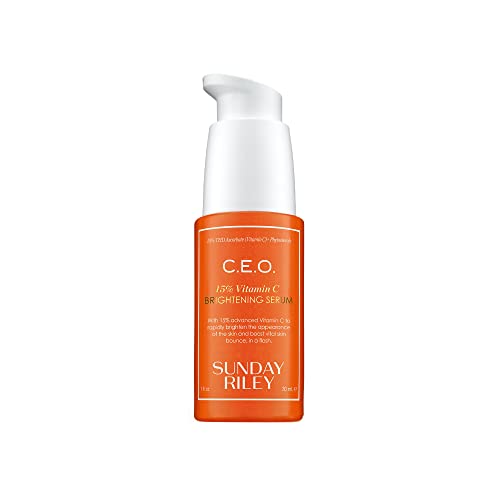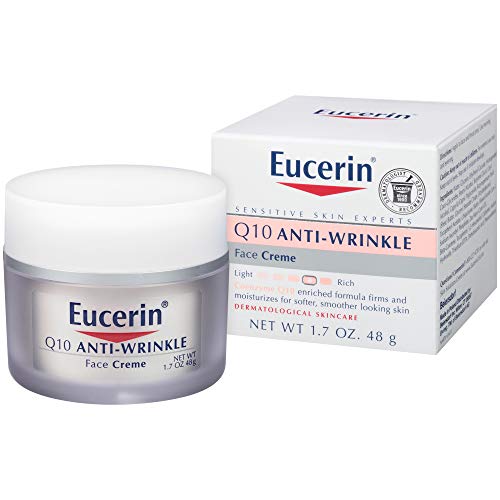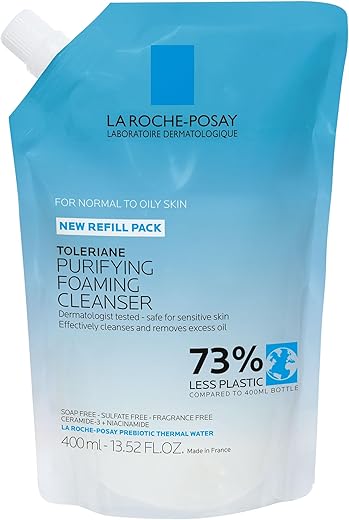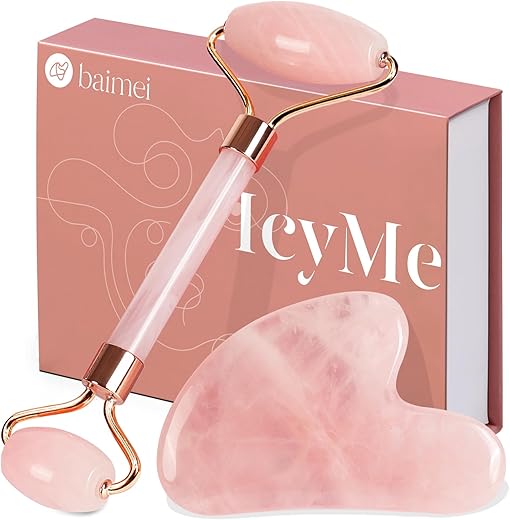
Is Vitamin C Serum Suitable for All Skin Types?
Are you tired of scrolling through countless skincare products, wondering which one is actually suitable for your skin type? We understand the frustration. That’s why we’re here to shed some light on the topic of Vitamin C Serum and its compatibility with different skin types. Whether you have oily, dry, sensitive, or combination skin, this blog post will help you determine if Vitamin C Serum is the right addition to your skincare routine. Say goodbye to uncertainty and hello to a radiant complexion!
Top-Rated Vitamin C Serums: Boost Your Skincare Routine with these Bestsellers!






What is Vitamin C Serum?
Vitamin C Serum has gained popularity in the skincare world for its numerous benefits and ability to promote healthier and more youthful-looking skin. Derived from a powerful antioxidant, vitamin C, this serum is a must-have addition to any skincare routine. In this blog section, we will delve deeper into the world of Vitamin C Serum, exploring its benefits and how it can be incorporated into your daily skincare regimen.


Benefits of Vitamin C Serum
Vitamin C Serum offers a wide array of benefits for the skin. Here are some of the key advantages that make it a valuable addition to your skincare routine:
1. Powerful Antioxidant Protection
Vitamin C is a potent antioxidant that helps to neutralize free radicals, which are unstable molecules that can cause damage to the skin. By incorporating Vitamin C Serum into your skincare routine, you are providing your skin with a necessary defense against environmental pollutants and oxidative stress, helping to keep your skin looking fresh and youthful.
2. Brightens and Evens Skin Tone
One of the standout benefits of Vitamin C Serum is its ability to brighten and even out skin tone. It helps to reduce the appearance of dark spots, hyperpigmentation, and sun damage, giving your skin a more radiant and uniform complexion.
3. Stimulates Collagen Production
Collagen is a protein that provides structural support to the skin. As we age, collagen production naturally decreases, leading to the formation of fine lines and wrinkles. Vitamin C Serum helps to stimulate collagen synthesis, promoting firmer and more elastic skin. Regular use of Vitamin C Serum can help to reduce the signs of aging and maintain a youthful appearance.
4. Improves Skin Texture
Vitamin C Serum has a positive impact on skin texture, helping to smooth out roughness and refine the skin’s surface. It aids in exfoliation, promoting the shedding of dead skin cells and revealing a smoother, more polished complexion.
5. Hydrates and Moisturizes
Vitamin C Serum also has hydrating properties, helping to replenish moisture and lock it into the skin. It is particularly beneficial for those with dry or dehydrated skin, as it provides an extra boost of hydration, leaving the skin feeling plump and nourished.
How to Use Vitamin C Serum
To reap the maximum benefits of Vitamin C Serum, it is important to use it correctly. Follow these steps to incorporate it into your skincare routine effectively:
- Cleanse your face thoroughly and pat dry.
- Apply a few drops of Vitamin C Serum onto your fingertips.
- Gently massage the serum onto your face and neck, avoiding the delicate eye area.
- Allow the serum to fully absorb into the skin before applying any other skincare products or makeup.
- Use Vitamin C Serum once or twice daily, depending on your skin’s tolerance and the concentration of the serum.
Choosing the Right Vitamin C Serum
Not all Vitamin C Serums are created equal, so it is essential to choose the right one for your skin. Consider the following factors when selecting a Vitamin C Serum:
- Concentration: Look for a serum with a concentration of 10-20% for optimal effectiveness.
- Formulation: L-ascorbic acid is the most common and stable form of Vitamin C in serums.
- Packaging: Vitamin C is sensitive to light and air, so choose a serum packaged in a dark, airtight container to maintain its potency.
- Additional Ingredients: Some serums may contain additional beneficial ingredients like hyaluronic acid or antioxidants, which can enhance the overall effectiveness.
Considerations for Different Skin Types
When it comes to skincare, one size definitely does not fit all. Each person has a unique skin type, and it’s important to choose products that cater to your individual needs. In this blog post, we will explore the various skin types and discuss whether Vitamin C Serum is suitable for each type. We will consider the potential benefits and drawbacks of using this highly acclaimed skincare product.



Skin Types
Before diving into the specifics, let’s familiarize ourselves with the different skin types:
- Normal Skin: Well-balanced skin with few concerns.
- Dry Skin: Lacks moisture and often feels tight or flaky.
- Oily Skin: Overproduces sebum, resulting in shine and potential acne breakouts.
- Combination Skin: A mix of dry and oily areas typically found in the T-zone (forehead, nose, and chin).
- Sensitive Skin: Prone to irritation, redness, and allergic reactions.
Now, let’s discuss whether Vitamin C Serum is suitable for each skin type.
Normal Skin
Normal skin types are fortunate to have well-balanced and relatively problem-free skin. Vitamin C Serum can provide numerous benefits for normal skin, including:
- Brightening: Vitamin C helps fade dark spots and even out skin tone.
- Antioxidant Protection: It fights free radicals, preventing premature aging.
- Collagen Production: It stimulates collagen synthesis, promoting firmness and elasticity.
Dry Skin
Dry skin can benefit greatly from the hydration and nourishment that Vitamin C Serum provides. Here’s why:
- Hydration: Vitamin C Serum’s moisturizing properties help alleviate dryness and reduce flakiness.
- Glowing Complexion: It boosts radiance, giving dry skin a healthy and vibrant appearance.
- Skin Barrier Support: Vitamin C strengthens the skin’s protective barrier, preventing moisture loss.
Oily Skin
While oily skin types may be concerned about adding more oil to their skin, Vitamin C Serum can still be beneficial:
- Oil Control: Vitamin C regulates sebum production, minimizing excessive oiliness.
- Acne Treatment: It has anti-inflammatory properties that can help combat acne and reduce redness.
- Scar Healing: Vitamin C aids in fading acne scars and hyperpigmentation.
Combination Skin
Combination skin can pose a challenge when it comes to skincare, but Vitamin C Serum can address different concerns across the face:
- Balancing: It helps regulate oil production in the T-zone while providing hydration to dry areas.
- Brightening: Vitamin C evens out skin tone, reducing the appearance of discoloration in both oily and dry areas.
Sensitive Skin
People with sensitive skin often struggle to find products that won’t cause irritation. Vitamin C Serum can be suitable for sensitive skin if the formulation is gentle and well-tolerated:
- Mild Formulation: Look for a low concentration of Vitamin C and avoid added irritants.
- Patch Test: Always do a patch test before applying Vitamin C Serum to your entire face.
- Calming Effect: It can help reduce redness and soothe sensitive skin when used appropriately.
Potential Side Effects
Vitamin C serum has gained immense popularity in the skincare industry for its numerous benefits and ability to rejuvenate the skin. However, like any skincare product, it’s important to be aware of potential side effects or sensitivities that may arise, especially for individuals with specific skin conditions. In this blog post, we will delve into these potential side effects to help you make an informed decision about incorporating Vitamin C serum into your skincare routine.

![Ombrace Vitamin C Suspension 23% + Ha Spheres 2% 30ml [ 2 Pack ]](https://m.media-amazon.com/images/I/31H6RcaLcfL.jpg)

Skin Sensitivities
While Vitamin C serum is generally well-tolerated by most individuals, some may experience skin sensitivities. These sensitivities can manifest as:
- Redness and Irritation: Some users may notice redness or irritation on the skin after applying Vitamin C serum. This can be a result of the concentration of Vitamin C being too high for their skin type or the presence of other ingredients that may cause sensitivity.
- Dryness and Tightness: Vitamin C serums often have a drying effect on the skin, which can be beneficial for individuals with oily or acne-prone skin. However, those with dry or sensitive skin may find that the serum exacerbates their skin’s dryness, leading to a feeling of tightness.
- Stinging or Tingling: A mild stinging or tingling sensation upon application is not uncommon, especially if the serum has a lower pH level. This sensation usually subsides quickly and is often considered a sign that the serum is working.
It’s important to note that these sensitivities are usually temporary and can be minimized by adjusting the frequency of use or opting for serums with lower concentrations of Vitamin C.
Allergies
Some individuals may have specific allergies that can be triggered by certain ingredients commonly found in Vitamin C serums. These allergies can manifest as:
- Rashes and Hives: Allergic reactions to Vitamin C serum can result in the appearance of rashes, hives, or itchy patches on the skin. This is usually a result of an individual’s immune system reacting negatively to one or more ingredients in the serum.
- Swelling and Inflammation: In more severe cases, allergies can cause swelling and inflammation of the face, lips, or eyes. This is a clear indication that the individual is allergic to one or more components of the serum and should discontinue use immediately.
If you have a history of allergies or sensitivities, it’s advisable to perform a patch test before applying Vitamin C serum to your entire face. Apply a small amount of serum to a small area of your skin and wait for 24 hours to observe any reactions.
Interaction with Other Skincare Products
Vitamin C serum is a potent ingredient that can interact with certain skincare products, leading to adverse effects. It’s crucial to avoid combining Vitamin C serum with the following:
- Retinol: Combining Vitamin C serum with retinol or other vitamin A derivatives can cause skin irritation and sensitivity. It’s best to use these ingredients at different times of the day or on alternating days to prevent any negative interactions.
- Chemical Exfoliants: Chemical exfoliants, such as AHAs and BHAs, can also interact with Vitamin C serum and cause irritation. If you’re using these exfoliants, consider applying them in the evening and using Vitamin C serum in the morning.
- Niacinamide: While there is conflicting information about the interaction between Vitamin C and niacinamide, some studies suggest that combining them may reduce the efficacy of both ingredients. To be on the safe side, it’s best to use them separately or consult with a skincare professional.
Tips for Choosing a Vitamin C Serum
When it comes to skincare, finding the right products for your skin type is essential. One product that has gained popularity in recent years is Vitamin C serum. Known for its brightening and anti-aging properties, Vitamin C serum can do wonders for your skin. However, with so many options available in the market, it can be overwhelming to choose the right one. In this blog section, we will provide you with helpful tips for selecting the perfect Vitamin C serum for your skin type. Let’s dive in!

1. Consider Your Skin Type
Different skin types have different needs, and it is important to choose a Vitamin C serum that caters to your specific skin type. Here’s a breakdown of the ideal serum for each skin type:
- Normal Skin: Consider a serum with a moderate concentration (10-15%) of Vitamin C.
- Dry Skin: Opt for a serum with a lower concentration (5-10%) of Vitamin C and additional hydrating ingredients like hyaluronic acid.
- Oily Skin: Look for a serum with a higher concentration (15-20%) of Vitamin C and oil-free or lightweight formulations.
- Sensitive Skin: Choose a serum with a lower concentration (5-10%) of Vitamin C and gentle, soothing ingredients like chamomile or aloe vera.
2. Concentration of Vitamin C
The concentration of Vitamin C in a serum is a crucial factor in determining its effectiveness. Higher concentrations tend to offer more visible results, but they may also be harsher on the skin. Here’s a breakdown of commonly available concentrations:
- 5-10%: Suitable for daily use and sensitive skin types.
- 10-15%: Ideal for normal skin types and those looking for moderate brightening effects.
- 15-20%: Best for oily skin types and those seeking more intensive brightening and anti-aging benefits.
3. Formulation and Ingredients
Apart from the concentration of Vitamin C, the formulation and additional ingredients in a serum play a significant role in its performance. Look for the following key points:
- Stabilized Formulas: Vitamin C serums can be unstable and prone to oxidation. Look for serums with stabilized formulas, such as L-ascorbic acid or vitamin C derivatives like ascorbyl palmitate or tetrahexyldecyl ascorbate.
- Additional Antioxidants: Ingredients like vitamin E and ferulic acid enhance the efficacy of Vitamin C and protect the skin from damage caused by free radicals.
- Hydrating Ingredients: For dry or dehydrated skin, opt for serums containing hyaluronic acid or glycerin to provide an extra boost of hydration.
4. Packaging
The packaging of a Vitamin C serum can greatly impact its stability and effectiveness. Look for serums that come in opaque or dark-colored glass bottles to protect the product from light and air exposure. Avoid serums in clear or plastic bottles, as they can degrade the Vitamin C over time.
5. Price and Brand Reputation
While price is not always an indicator of quality, it is still important to consider. Compare prices of different serums and read reviews to ensure you are getting a product that is worth its value. Additionally, choose a reputable brand that is known for its quality skincare products.
Final Thoughts on the Suitability of Vitamin C Serum for Different Skin Types
In conclusion, while Vitamin C Serum can provide benefits for many individuals, it may not be suitable for all skin types. Factors such as skin type, sensitivities, and individual needs should be considered when incorporating this product into your skincare routine. To ensure the best results, we recommend consulting with a dermatologist to determine the most appropriate course of action for your specific skin concerns.

Hey, I’m Ava Wilson—a skincare enthusiast and a certified esthetician. I’m dedicated to sharing my knowledge and empowering others to achieve healthy, glowing skin through simple, effective routines and natural remedies. Join me on this exciting skincare journey, and let’s unlock your skin’s potential for a confident, beautiful you.





